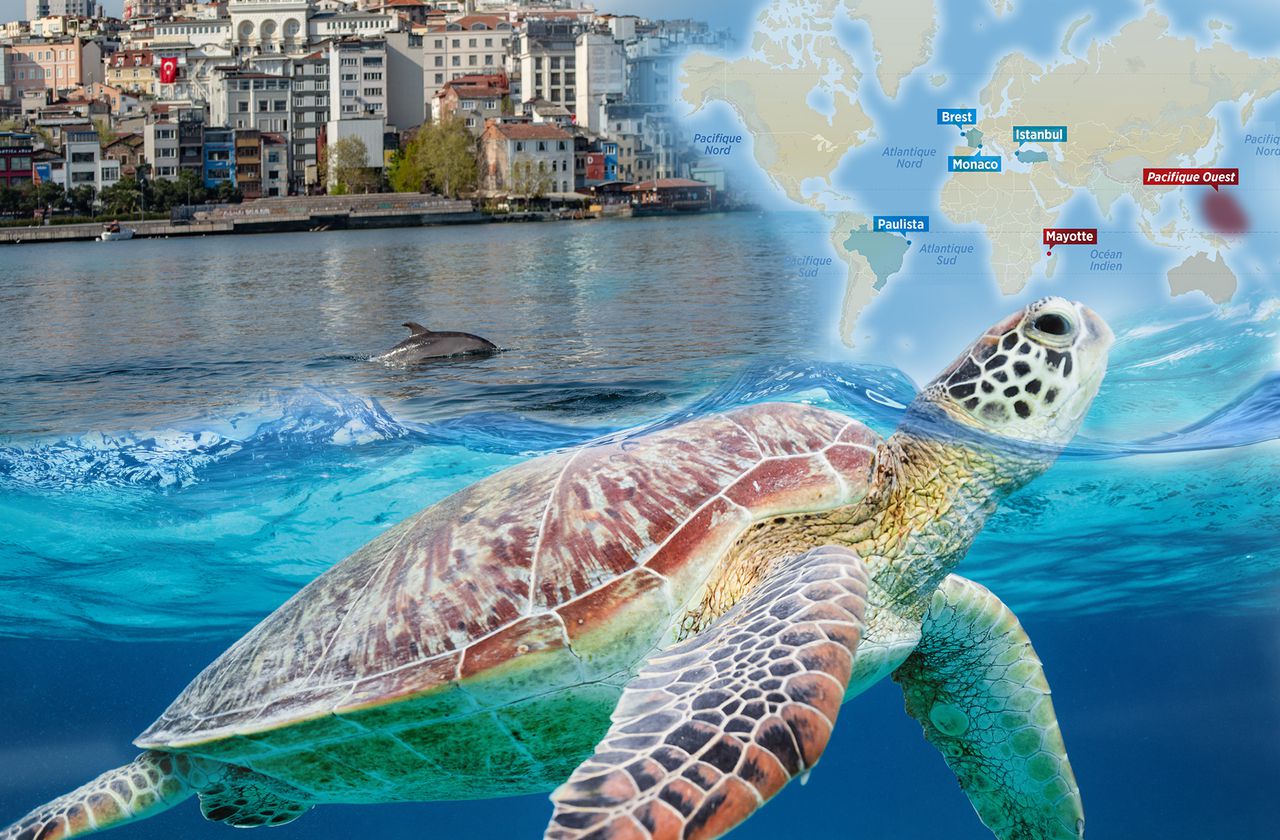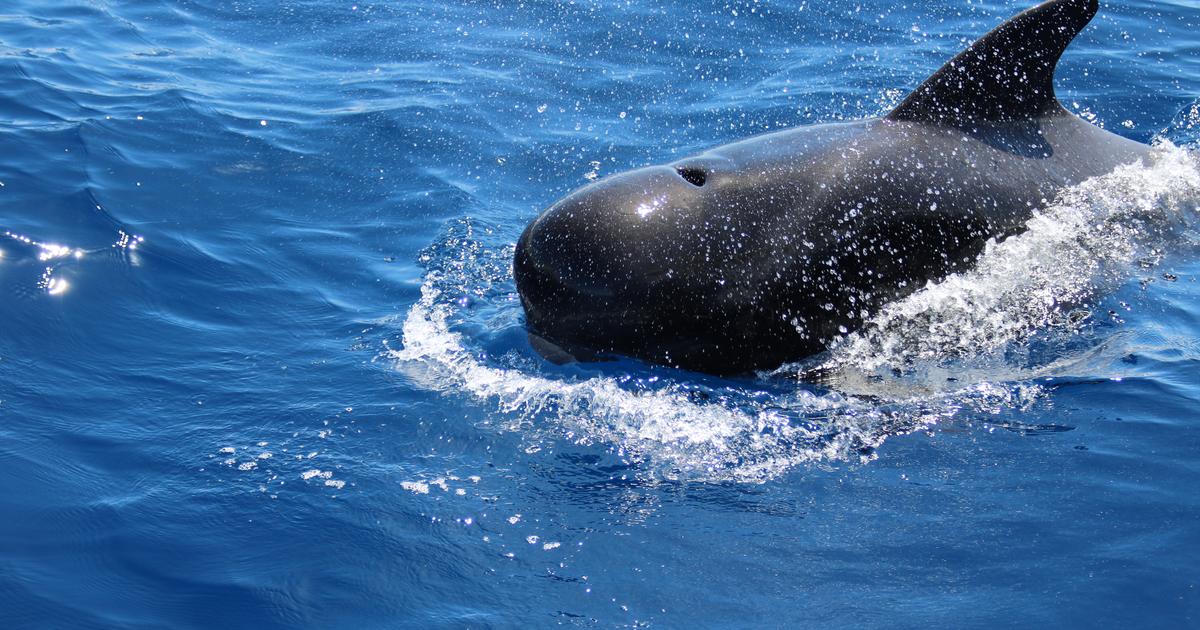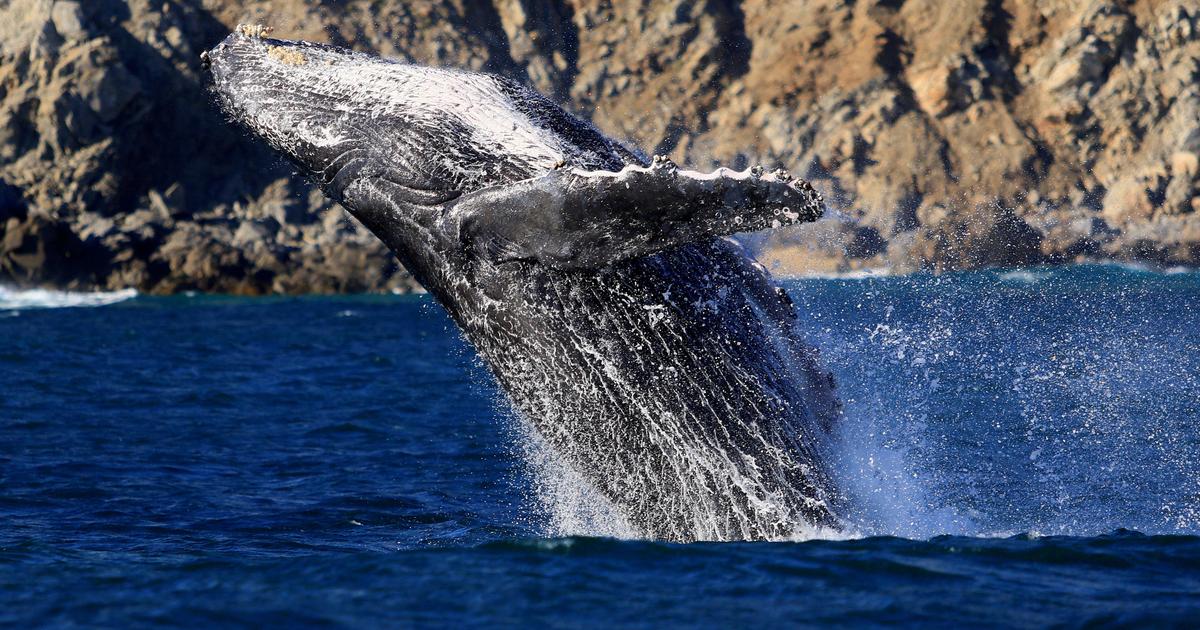Aboard the “One Cat”, a few miles from Marseille (Bouches-du-Rhône), Antoine Thébaud listens to cetaceans from the Mediterranean. The scientist participates in the Sphyrna Odyssey Quiet Sea mission of the Prince Albert II of Monaco Foundation. " It's fascinating. We found conditions close to a hundred years ago, before industrialization. This very special period can also serve as a zero point for measuring the human impact on bottlenose dolphins, beaked whales… ”he enthuses. “Usually, we pick up the songs of sperm whales as if through a radio scrambled by the hellish noise of ships. This time, we are attending a concert in perfect acoustic conditions! "Compares Philippe Mondielli, the scientific director of the Foundation.
The containment that ended did not only provide marine biologists with better viewing conditions. For marine animals, this unprecedented return to the world of silence is also a liberation when noise pollution causes terrible stress, causes injuries, even death.
"Particularly that of military vessels," says Frédéric Le Manach, scientific director of the NGO Bloom, against overfishing. They use very powerful sonars that mammals flee so as not to have their eardrums pierced. Studies show that they cause mass stranding of beaked beaked whales in the Bahamas, Canary Islands, Greece, Italy or Spain. "
The return of the whales?
That's not all: at the time of confinement, we saw hammerhead sharks in the harbor of Brest, small turtles out of the egg rushing into the sea on a usually crowded beach in Brazil. Marine life has taken up the space left vacant by humans as a result of the Covid crisis, just like wild life in the city. At sea, biodiversity probably benefits even more from near-global containment, since human activity has a far greater impact on it. Container ships collide with whales in the Mediterranean, boaters upset the maternity of whales in the Indian Ocean, and fishermen massively take fish from stocks to Antarctica.
The global pandemic has brought fishing to a halt. Why? Because on board the boats where the crews work close-together, it is very difficult to respect the barrier gestures. And also because consumption has collapsed. "At the Lorient auction last week, only 40% of the activity was observed," reports Alain Biseau, biologist at Ifremer. There was a precedent: the Second World War had made it possible to find levels of fish resources never seen since industrialization. But the break in trawl ballet had lasted for years.
This time, even if we do not know exactly when the fishermen will be able to launch their net again, "it is only a short circuit", jokes Ludovic Frère Escoffier, specialist in ocean life at WWF France . Species with a “rapid life cycle”, which reproduce quickly, such as sardines, herring, anchovies, will nevertheless be able to benefit a little.
My Earth Newsletter
Each week, environmental news seen by Le ParisienI'm registering
Your email address is collected by Le Parisien to allow you to receive our news and commercial offers. Find out more
Will the virus have a long-term impact? "We just don't know, see you at the end of this year at the balance sheet time," insists Alain Biseau. It is not because there are fewer nets at sea that the populations will automatically rise. Take a cod: out of the hundreds of thousands of eggs laid, 3 to 10 become small fish. It is not only related to the catches but also to the quantity of plankton, to the water temperature… ”
In addition, the ocean protection NGOs are worried about "the day after": "Of course, the fishermen must go back to sea, but we feel the pressure of industrial fishing to obtain flexibility from the environmental rules ”, points out Frédéric Le Manach. In the Indian Ocean, tuna vessels are claiming to disembark their observers, who have been installed since 1982 to prevent the fleets from undervaluing their catch or falsifying it.
At the European level, the showdown is already beginning: some claim to be able to fish 25% of the quotas for 2020 in 2021. "On paper, this may seem logical, but it doesn't work like that, argues Ludovic Frère Escoffier . If there are quotas, it is that catching more is dangerous. In France, only one out of two fish is caught sustainably. In the Mediterranean, it's one in nine! "
In Monaco, Philippe Mondielli wants to believe that these beautiful images of a found marine nature will have taught that "at sea, we are guests". "In the Pelagos sanctuary for marine mammals (Editor's note: 87,000 km2 off the coast of France, Monaco and Italy) , cetaceans can only be observed with great care ..." he specifies. Boaters should not forget to respect social distancing also with these majestic neighbors.
VIDEO. Arcachon bay: a deer bathe at the Pointe du Cap Ferret















